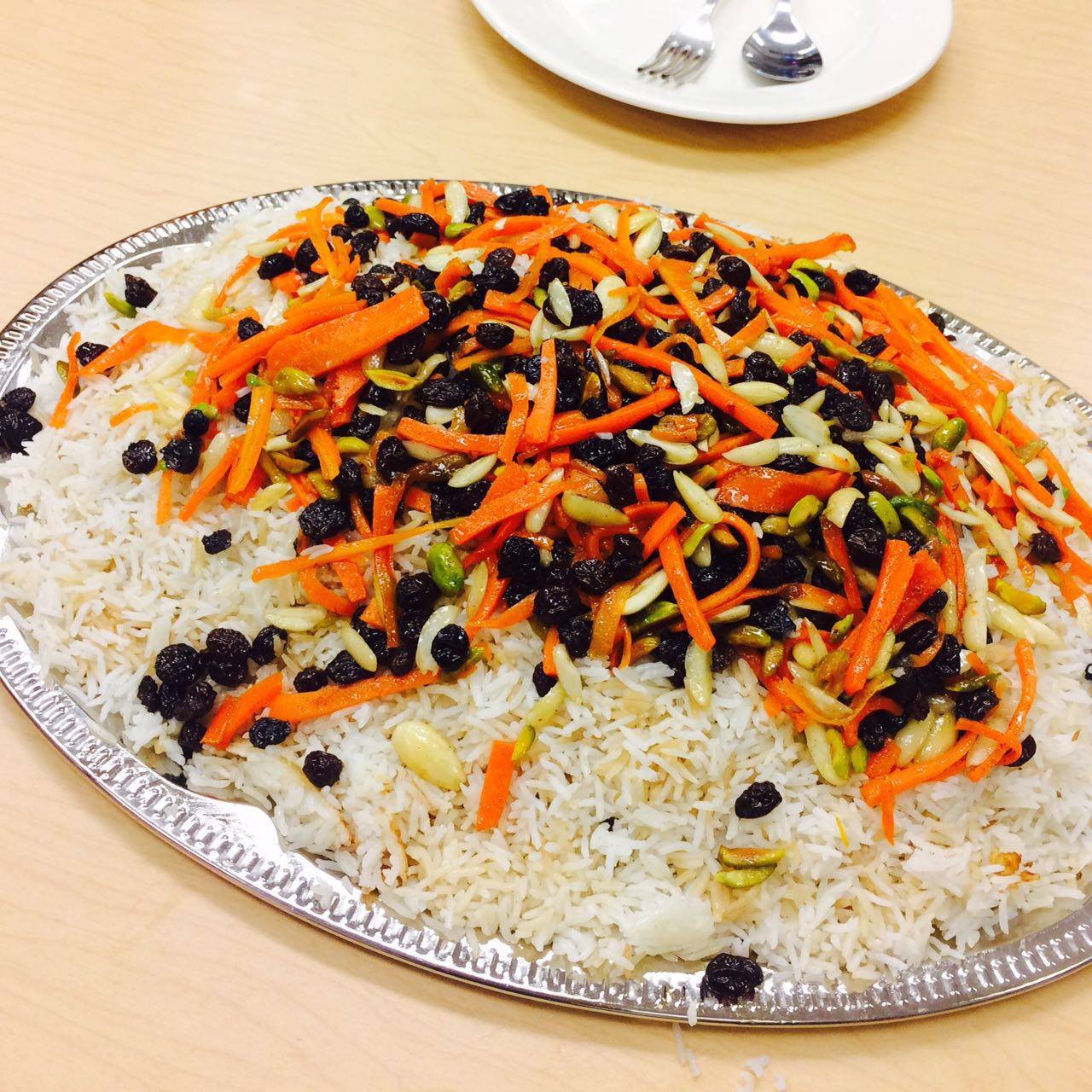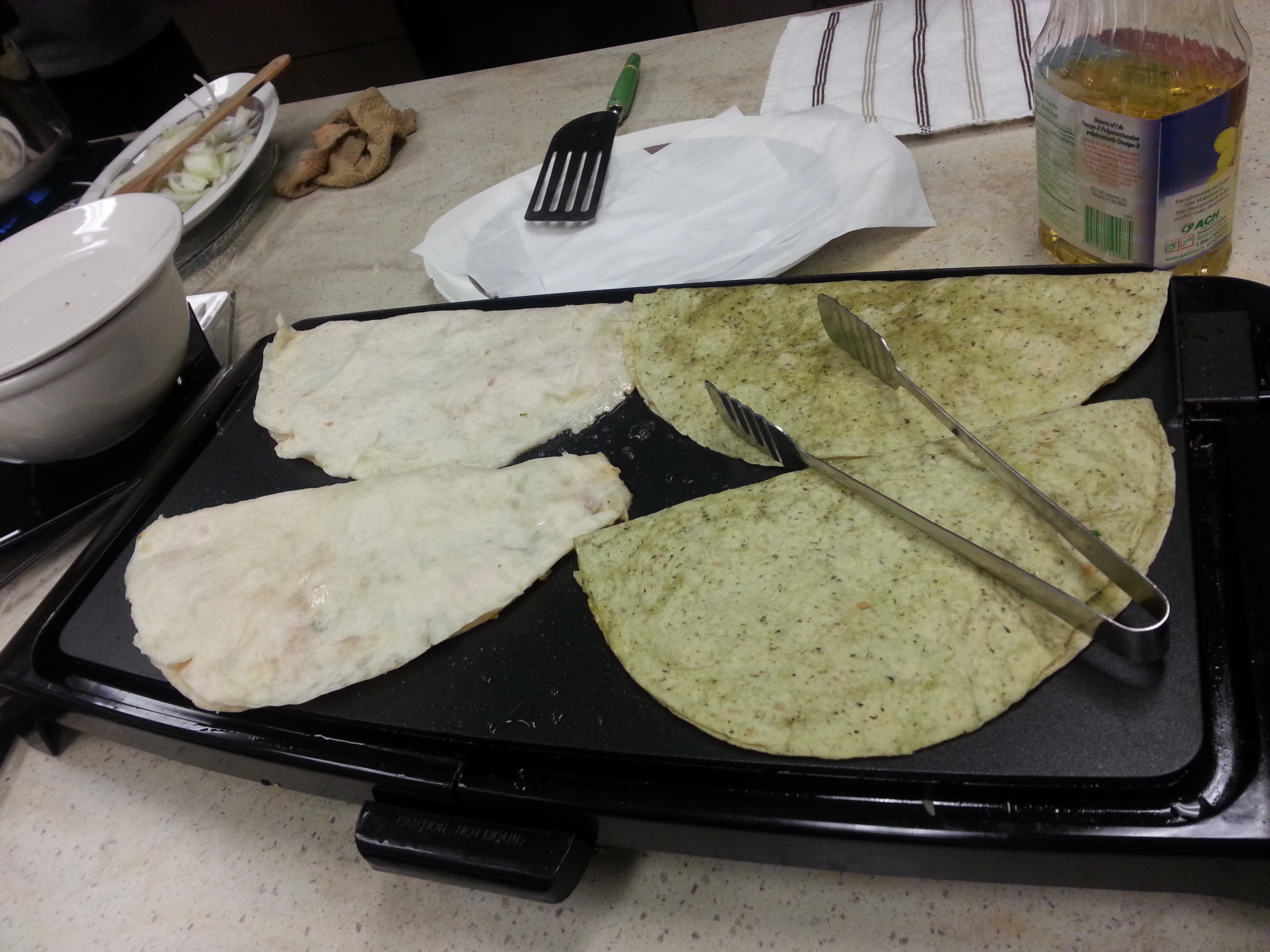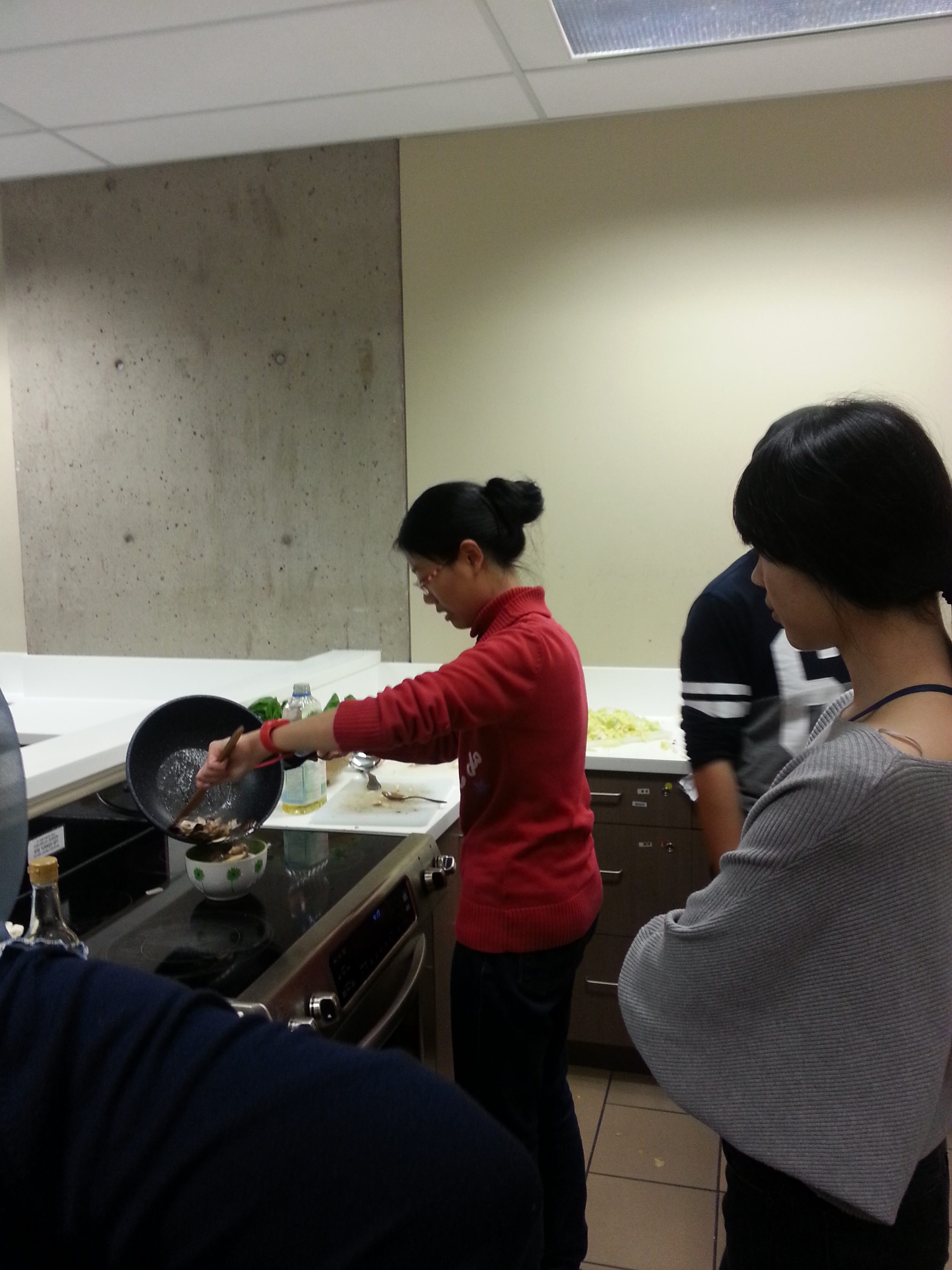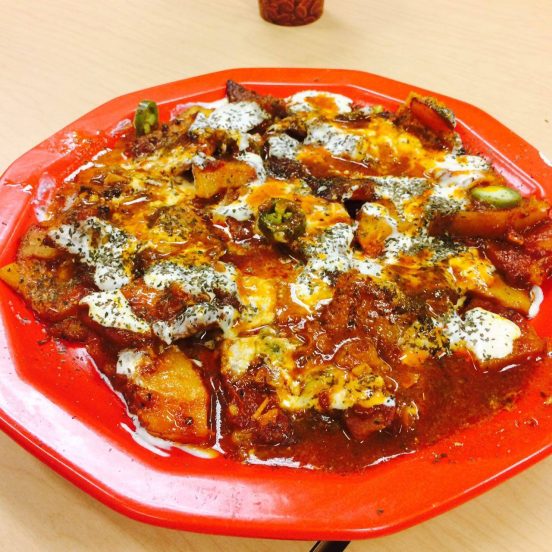Hellooooo everyone,
On Nov.16th, we held an AMAZING cooking session in collaboration with ISS of BC, which proved to be an unforgettable experience. Throughout this whole process, our group performed as ORGANISERS and COORDINATORS.
The Afghan recipes that were cooked were: Bourani Kado, Bolani with potato filling, and Qabuli Palaw. We decided on Bok Choy, Chinese Cabbage, Black Ear Fungi and Sponge Cucumber.
A few days before the cooking session, Wen and Amellia met with the kitchen supervisor, Barbara, with the help of Will and Carrie, to discussed about the kitchen equipments. We couldn’t use the equipments freely, so we needed to give the list to Barbara so she could arrange them.
Another main challenge is to get all those ingredients for Afghan recipes. There are quite a lot of ingredients, and some of them were quite hard to find; such as unsalted pistachio, halal veal and some spices. In the end, we couldn’t find veal, so we substituted it with beef and chicken. Determining the serving size was also quite challenging since it was not stated in the recipes. Amellia, the contacter of our group, had to contact Shabnam back and forth to clarify the serving size.
On the cooking session day, Patty met with the seniors and Shabnam at the bus loop and guide them to the kitchen. Unfortunately, at that time the kitchen was not ready yet. The cooking session ended up being delayed for about 30 minutes as we needed to prepare the equipments first. Once the kitchen was ready, the seniors were very excited and started to cook immediately.

One of the most successful things was to introduce black fungi, a type of fungus often used in Chinese cooking, to the Afghan seniors who had never seen it before and were quite curious to learn about its use in cooking! All of us are also very excited to learn about the Afghanistan food, such as the national dish “Qabuli Palaw”. It is an excellent opportunity for cultural exchange.
This session has its sociological impact. We were glad that people from all cultures are willing to learn the nature, functional properties and cooking methods of black fungi. Black fungi, in this way, realized its value in a global scope, which is definitely worth being proud of. In order for a food to be accepted by different ethnic groups, it has to be appealing in terms of taste, look, and/or nutritional value. Only with targeted consumers could this type of food bring economical benefit, and could be manufactured or imported and sold in large scale.
This reminds us of the blog ‘GMOs, Silver Bullets and the Trap of Reductionist Thinking’, which is written by Jonathan Foley, describes the importance of system thinking and the consequences of reductionist thinking by using GMO as an example.The reductionist thinking, which in this article is trying to use some unproven, one-step high-tech approach to cope the same problem instead of putting efforts into improved exist approach. On the other hand, systems thinking can help us to focus more on the environment and society rather than pay too much attention to develop some kind of one-step high-tech solution and lead to failure. In our project, sometimes we tried to find a one-step solution and result turned to be not very ideal. For example, before the cooking session, we decided that our group members would go shopping for all the ingredients, since we believe that it would much difficult for the seniors to go to multiple stores and carry the heavy ingredients around. Also, we thought it would be more efficient if we can search online and locate a large superstore which have all the products that we need. However, the reality is that it took us more than 3 hours to do the shopping and we were not able to get everything we need. We realized that using search engine to find a store may not be more efficient than asking the seniors where to find the ingredients. Although we solved this problem by substituting some ingredients and shopping extra ingredient during the cooking session, the whole process will be better if we can pay more attention to and ask for more suggestion and information from the seniors rather than just trying to complete the task and be success by following our own thinking of steps.

Creativity springs up under pressure. We did not hesitate to replace mushroom with black fungi at the moment we found the mushroom was not fresh. which proves to be good! During our cooking session, lots problems arose. Some ingredients were not enough and some ingredients and equipments were missing. However; in no time, we already designed who did what. Yihan and Zowie took turns on purchasing the ingredients; Wen and Patty did the cooking; and Amellia coordinating with Barbara for the missing equipments. We managed to tackle those problems quickly and the cooking session was a success. We learnt to keep our calm under pressure in order to solve the problems and also the importance of team play. We also learnt to embrace the awkwardness and turned it into something fun. For some of us, it was their first time meeting with the Afghan seniors and the translator, Shabnam. However, not a trace of awkwardness could be found during the cooking session and all of us had so much fun. As Tim Harford mentioned in TED talks, “…the ugly fun, the awkward strangers, and the random moves; these disruptions help us solve problems. They help us become more creative. But we don’t feel that they are helping us. We feel that they are getting in the way, and so we resist.” We tend to avoid strangers and problems in our life; however, when we avoid them, we might also avoid some fun in our life and also missing the chance to grow and be more creative.
Each of the team members contributes to the maximum extent for the cooking session and collaborated very well under complex circumstances and under pressure. In restricted time period under full study load, we have to keep calm and complete all those in well-organized manner.

As approaching to the end of this semester, the recipe book and the asset map are nearly completed. We are planning to send both of them to Thea, and hopefully can get feedback by December 1. In addition, the project report and the infographic are due in few days. In order to finish the report and infographic efficiently, we distributed our work. By doing so, we believe that we will have a well-written report and infographic this term.
We are really grateful for the help we received throughout the project from Thea, Shabnam, Carrie and Will. We also greatly appreciate and thank the Afghan seniors who contribute to the recipe book and the cooking session. Overall, this project has been a very good experience for all of us. There might be moments when we felt burdened by this project and other assignments from other courses that we take. However, even though it has been hard, it is also quite an enjoyable and valuable experience for all of us. Thank you!
Reference:
Foley, J. (2014, February 26). GMOs, Silver Bullets and the Trap of Reductionist Thinking.
Ensia. Retrieved from https://ensia.com/voices/gmos-silver-bullets-and-the-trap-of-reductionist-thinking/
Harford, T. (2015, September). Tim Harford: How messy problems can inspire creativity
[Video file]. Retrieved November 27, 2016, from


